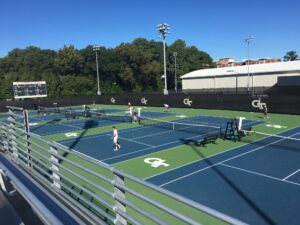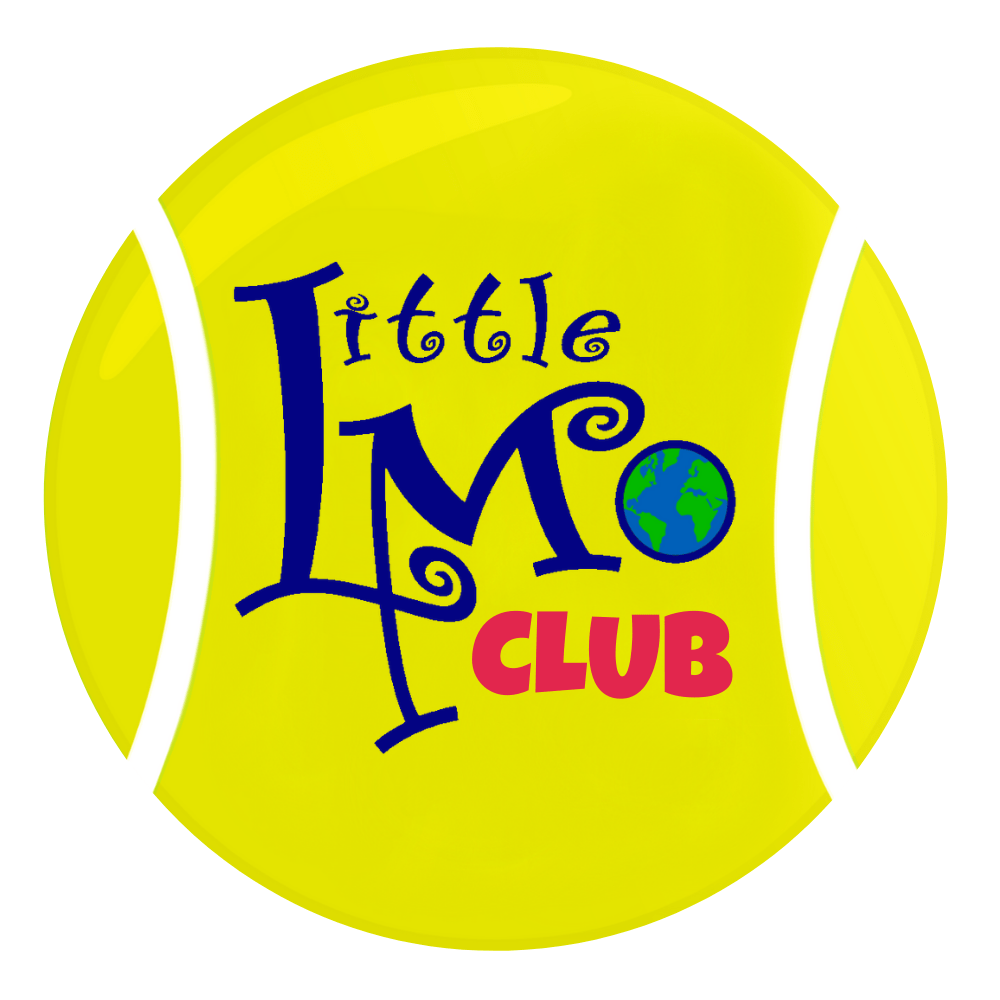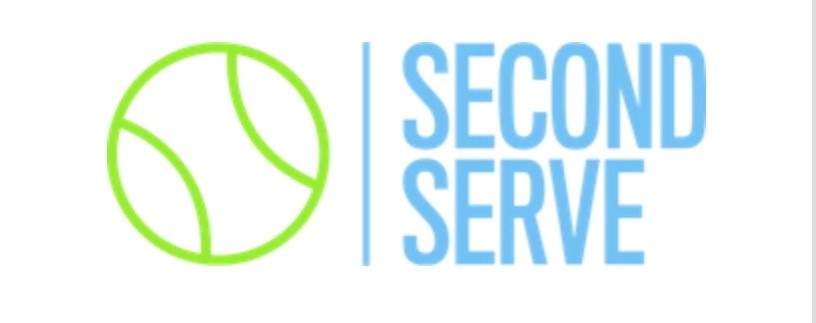Interview with a College Tennis Parent
Up Next
A New Type of Tournament I think I’ve watched more college tennis in the past 3 weeks than I have in my entire life! It started with the Georgia Tech Invitational in my own backyard then stretched all the way to the Oracle ITA College & Junior Masters in Malibu followed by the ITA Mountain Regionals in Las Vegas. I’ve been in Tennis Heaven!
I think I’ve watched more college tennis in the past 3 weeks than I have in my entire life! It started with the Georgia Tech Invitational in my own backyard then stretched all the way to the Oracle ITA College & Junior Masters in Malibu followed by the ITA Mountain Regionals in Las Vegas. I’ve been in Tennis Heaven!
During all those phenomenal matches, I had a chance to speak with several coaches and parents about what’s happening in college tennis around the country and throughout the various divisions. The interview below is from of one of those conversations.
ParentingAces: You’ve invested a lot of time and money to get your child to the point where he can play college tennis. Was it worth it?
Tennis Parent: From my perspective, absolutely. Yes, our family made many sacrifices throughout our son’s developmental years, but we feel these were sacrifices worth making. There’s something very profound about watching your child develop a true talent for something, whether it’s academics, the arts, a sport, or, really, anything. They start out a little awkward, a little frustrated, but then, to see them gain in skill and confidence is so amazing. With the current college scholarship situation, especially for the boys, it’s tough to justify the tens of thousands of dollars spent in getting our son to the point where he was skilled enough to play in college. That said, I still think the value lies in the experience of being part of a college team, being under the watchful eye of the coaches, and having a unique identity on campus. The experience he’s having, not only on the court but off as well, should serve him well as he moves from Student-Athlete into his adult life.
PA: How has your life changed now that your son is now in college?
TP: For one, my afternoons and weekends now belong to me. That’s pretty freeing. But, I do miss the social connections I had as a result of being at the tennis courts each day and each weekend. I made some wonderful friends through my son’s tennis, and, sadly, we rarely see each other any more. Being with the same people a few times a month, each month for over 10 years, relationships have a chance to grow and develop. We do stay in touch through social media, but it’s certainly not the same as hanging out at the tournaments together, eating meals together, and all that. Plus, there’s the fact that I went from spending most weekends with my son – traveling, staying in hotels, eating meals together – to seeing him very rarely now. That’s tough. I miss him, but I’m excited for the experiences he’s having in college.
PA: You recently had the chance to watch your son play for his college team. Is that different from watching him in the juniors? If so, how?
TP: You know, I had one of those lightbulb moments watching him play for his team. These matches are no longer for ranking points or for helping him get into the next tournament. They are solely for him to learn and grow as a player and a person. The pressure is off. He’s not planning to pursue a professional tennis career, so this is the end of the line in terms of his opportunity to develop and compete at this high level. Sure, I still want him to win – winning is way more fun than losing! – but I can now watch him and just enjoy the beauty of the sport, the knowledge that all his hard work has led him to this point. If he wins the match, great. But, if he loses, it’s just not that big a deal as long as he feels he’s learning each time he steps on the court. I wish we both could’ve had that mindset throughout his junior years. It certainly would’ve taken a lot of the stress away for both of us.
PA: Has your child’s college experience lived up to his expectations?
TP: Yes and no. I don’t think there’s any way for these kids to truly understand what will be expected of them once they get to college. Not only are they expected to attend classes, study, do homework, and prepare for tests, but they also have the added pressure of their on- and off-court tennis training and travel. Couple that with trying to find time for a social life, and it’s really tough. Playing college tennis, whether or not there’s any scholarship money involved (but especially if there is), is close to a full-time job. Even if the student-athlete is only getting a small scholarship, it is likely still more money than they could earn working while attending school full-time, and there is certainly pressure that goes along with that. One of the things that I think my son found especially tough is finding the time to get his schoolwork done when he’s away from campus at tournaments or dual matches. Some of his professors are understanding and others aren’t, so he’s had to learn how to navigate all that stuff, too. But, being part of a team, having a built-in family on campus and coaches who care, is absolutely what he hoped and expected it would be.
PA: You mentioned that your son isn’t planning to go pro after college. How do you feel his college tennis experience might serve him once he’s done with school?
TP: My hope is he’ll continue to learn skills through his tennis that will help him once he’s out in the working world. There’s been a lot written, especially on your website, about how tennis is a sport for life, and I do think that’s true. Tennis is about problem-solving. It’s about continuing to fight even when the odds aren’t in your favor. It’s about relying solely on yourself to get the job done. It’s about maintaining focus despite all the distractions surrounding you – that’s especially true in college matches with all the cheering going on on the sidelines. So, yes, these are all skills that should translate well as he moves into his adult life after college. I’m also hoping he’s going to make some good contacts through tennis that may lead to internships and jobs moving forward. If he goes about this the right way and takes the time to introduce himself to the people who come out to watch the team, shakes their hands and makes a good impression on them, then I think he’ll be a giant step ahead of his peers when he’s ready to start interviewing for jobs. Plus he’ll always have his tennis skills to use in business and social situations, whether it’s entertaining clients or making connections while he’s vacationing or meeting people if he moves to a new community. That label of “college athlete” should serve him well.
Note from Lisa:
Here is a link to an article that should help Prospective Student Athletes when they meet with the college coach and/or admissions folks: https://www.usatestprep.com/blog/2018/07/06/12-college-interview-questions-you-must-prepare-for/












